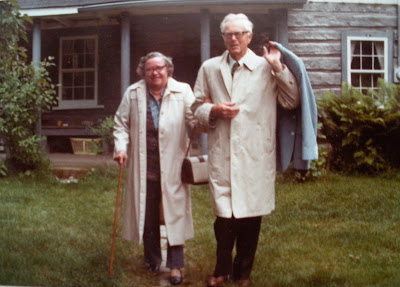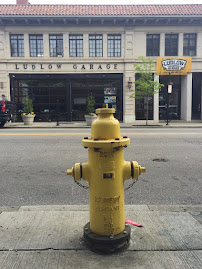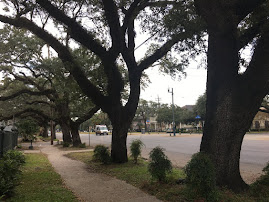
Dear George,
Around age two or three little kids start getting a ton of messages that boys should be boys and girls should be girls, and, by the preteen years, these tasks have become a paramount concern. In the rural U.P. of the 1940’s and 50’s all of this was exacerbated by rigid sex segregation, chauvinist stereotypes, and subcultural values centered upon hunting, cars and trucks, football, fighting, and heavy drinking. For boys in our society, maleness largely means developing and acting upon capacities for power and aggression. Clint Eastwood’s characters provide a classic model.
My teenage peers mostly displayed their maleness by swearing a lot, spitting, scratching their crotches, shoving one another around, and speaking derogatorily about girls and teachers. I’m sure I did some of that, though I never felt entirely comfortable. Instead, an important source of my male identity was my heavy, powerful, steel-framed bike which I nicknamed “Black Stallion” and which I rode back and forth on Riverside Boulevard from our house to town in the dark of night. At 9 or 10 p.m. the journey past the gravestones of Riverside Cemetery was unnerving, and I would pump Black Stallion up to its maximum speed, racing for the safety of home a mile away.

When I was 15, my brother Steven’s best friend, Peter J, showed up with a new-fangled bicycle that his parents had bought him. It was imported from England, and Peter claimed it was the newest thing in racing bikes. I pooh-poohed the idea. Peter was pretty skinny, and his bike was still skinnier. It had a lightweight aluminum frame with ultra thin tires, and it didn’t look to me like it had any power at all. Peter, four years younger and six inches shorter, challenged Black Stallion and me to a race. On a lark, I agreed. We charted out a three-block course on Sheridan Road, and Steven called out “Start”. Off we went, pedaling at maximum speed. I was shocked when Peter began to pull ahead of me after twenty yards or so, and I started pumping as hard as I could. Peter and his wimpy bike won by at least half a dozen lengths. Dismayed as I was, I still would never have turned my back on Black Stallion. I decided that it was preferable to be powerful and manly than to have a faster bike.

My preoccupation with manliness continued when I went off for my freshman year at Antioch a couple of years later. During the first term my roommate Les Z. met his Phys Ed requirement by taking boxing with Coach McGeary, who had been a professional boxer himself. Les was rather short and chubby and not athletic at all, and I was intensely jealous of him because he had graduated from the nationally renowned Bronx School of Science and the Arts and was superior to me in every domain of knowledge that existed. Les talked about Coach McGeary and boxing class all the time, and I decided that I should take boxing too, certain that it would be a manliness-enhancing endeavor. I signed up with Coach McGeary for the second term. There were about twelve students in the class. I was 5-10 and weighed 145, about the same size as another freshman named Timmy. Everyone else was an upperclassman, ranging from 6-1 to 6-5 and weighing 200 to 260 lbs. Even to this day I am certain that all the biggest males in the college were enrolled in this class. I won’t go into the gruesome details. I’ll just say that I wound up every session with a severe headache which ruined my ability to concentrate in any of my other classes. One of the biggest guys named Jack asked me to box every class, offering an arrangement that I could try to hit him as hard as I could while he would only defend himself and not hit me at all (except toward the very end of the bout). It seemed like the best deal available. We did that each week, with him dodging and parrying and fending off my fierce jabs with little difficulty. I don’t think that in ten weeks I ever landed a solid blow. Then near the end of the match he would engage in rapid-fire right and left hand jabs, pummeling my head and chest until I was on the verge of collapse. This manliness stuff is a bunch of bull, I would decide. As soon as I reached that conclusion, though, I would get paired up with same-size Timmy who was having the same dismal experience that I was. We would go at one another furiously like it was the welterweight championship of the world, and Coach McGeary would have to pull us apart. When the class came to an end, I wondered if it had been worth it to get beaten up every week. I guessed that it was – I did feel a little tougher. One Friday night at a drunken party I challenged my roommate Les to slug it out with me, but he just laughed and said I was a funny guy. When I admitted to him that I didn’t like boxing class that much, he said that he had hated it.
Now at my advanced life stage manliness is less pressing a concern than it was in my teens and twenties. Nonethless, these insecurities never completely vanish. Nowadays the sheepdogs provide me with a source of masculine identity confirmation. They’re big strong males, often rambunctious, and there are two of them which presents certain challenges in management. When they were unruly puppies, the obedience trainer recommended choke collars, and we’ve used those ever since. Physically managing the tugging dogs under these circumstances gives me a certain sense of power and male fulfillment. Our friend Donna, in contrast, uses what is called a “Gentle Leader” on Sophie, and she swears by it. The Gentle Leader circles the dog’s snout, with the attachment for the leash under the dog’s chin rather than behind its head. According to the advertisement, the device places gentle pressure on calming points and eliminates uncomfortable pressure on the throat, thus proving “a very effective tool in combating lunging, jumping, excessive barking and helping to calm an aggressive and/or anxious animal.”

Duffy with his Gentle Leader
We actually own two Gentle Leaders, bought at Donna’s insistence when she took care of the dogs a couple of years ago, though I’ve rarely used them. Yesterday I tried the Gentle Leaders simultaneously on both dogs for the first time, taking them for a walk on Ludlow Avenue. Mike is a pain in the neck to walk these days. He doesn’t want to go beyond our front yard, and you have to pull him by the neck for the first block or two. Duffy, in contrast, is terrified by all the sounds on Ludlow Avenue, particularly if there’s a skateboard, and he drags you down the street, straining on his choke collar to the point of having to gasp for breath. I was surprised and impressed that none of this happened in our Gentle Leader walk. Mike moved right along, keeping up with the pack, and Duffy walked compliantly by my side, even when a skateboarder passed by across the street. I had to admit to myself that the Gentle Leader was far more effective in calming and controlling the dogs than their conventional collar. The hitch, though, is that it doesn’t seem very manly. There’s a certain male challenge in trying to corral wild dogs that are tugging in opposite directions, and the Gentle Leader seems like an artificial solution. Gone is the need for physical domination, as is the opportunity for triumphing in a contest of wills. Maybe that’s why I don’t see many large men using Gentle Leaders. Plus the problems are only made worse by the device’s name, Gentle Leader. If it were called the Collar of Coercion or the Noose of Power, I might feel more comfortable. I’m sticking with the dogs’ choke collars, though there is a certain temptation to change one’s ways.
So that’s the story. I’m afraid manliness isn’t all it’s cracked up to be. In my case (and I’m sure there are many other examples), it led me to stick with my sluggish bike, get used as a punching bag by big muscle-bound guys, and get jerked around trying to control wild dogs. But, on the other hand, what is life is all about? If there weren’t a few rough spots, it would be difficult to be manly at all.
Love,
Dave
G-Mail Comments:
-Jennifer M (5-1): I like these stories and analysis. From the other side: Not being manly presents its rough spots too. Just ask my C. But I know you know this, because you see my distressed nerves as I watch him blaze his trail. :-)
 Vic L (center) and colleagues in the Pacific (circa 1944)
Vic L (center) and colleagues in the Pacific (circa 1944) Vic L, Lieut. JG, in occupied Japan (circa 1945)
Vic L, Lieut. JG, in occupied Japan (circa 1945)































.jpg)


.jpg)
























































































































































